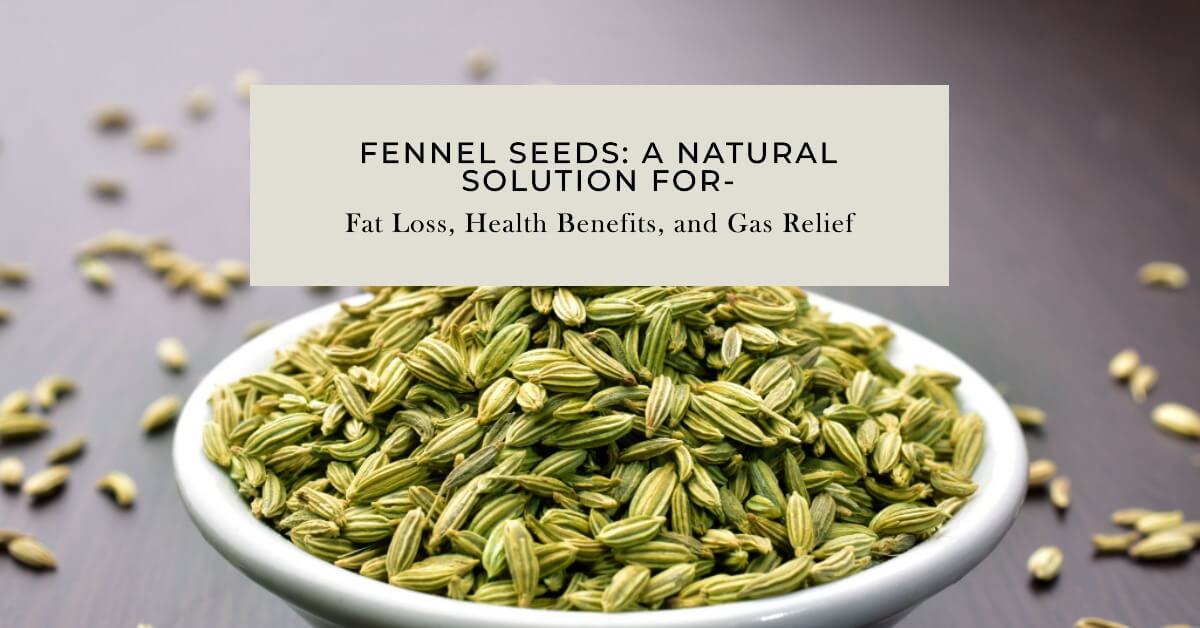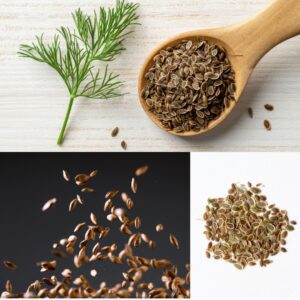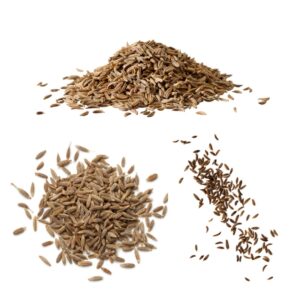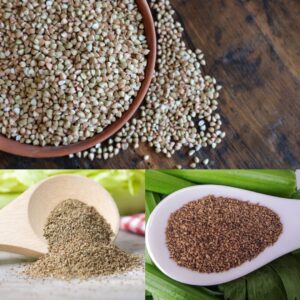Fennel seeds have long been recognized for their culinary uses, adding a unique flavor to dishes. However, these small seeds also possess various health benefits, including their potential role in promoting fat loss. If you’re looking for a natural and effective way to support your weight loss journey, incorporating fennel seeds into your diet may be worth considering.
Understanding Fat Loss 
Before delving into the benefits of fennel seeds for fat loss, it’s essential to understand the concept of fat loss itself. Fat loss refers to the reduction of body fat, which plays a crucial role in maintaining a healthy weight and overall well-being. Excess body fat is associated with various health risks, including heart disease, diabetes, and certain cancers.
Role of Fennel Seeds in Fat Loss
Fennel seeds are a rich source of nutrients, including fiber, vitamins, and minerals. Their composition makes them a potential aid in weight management. While fennel seeds alone won’t magically melt away fat, they can complement a healthy diet and exercise routine to support your weight loss efforts.
- DC DOCTORS CHOICE FAT BURNER Shredz Pro Formula with 500mg Acetyl-L-Carnitine CLA Green Coffee Bean Extract Garcinia Cambogia (60 Tablets)-CHECK BUY LINK
-
MuscleTech, Hydroxycut Hardcore, Super Elite, Supports Fat Metabolism – Pack of 100 Veggie Capsules-CHECK BUY LINK
Boosting Metabolism with Fennel Seeds
One key aspect of fat loss is metabolism, which refers to the chemical processes in the body that convert food into energy. A higher metabolic rate can help burn calories more efficiently, aiding in weight loss. Fennel seeds contain compounds that have been found to boost metabolism and increase calorie expenditure.
The thermogenic properties of fennel seeds mean that they generate heat in the body when consumed. This process, known as thermogenesis, can lead to a temporary increase in metabolic rate. By incorporating fennel seeds into your diet, you may give your metabolism a slight boost, which, when combined with a healthy lifestyle, can contribute to fat loss over time.
Appetite Suppression and Fennel Seeds
Managing appetite is another crucial aspect of weight loss. Fennel seeds have been traditionally used as a natural appetite suppressant. The seeds contain essential oils that help create a feeling of fullness and satiety, reducing the desire to overeat or snack between meals.
By chewing on a few fennel seeds or drinking fennel tea before a meal, you can potentially curb your appetite and make healthier food choices. However, it’s important to note that while fennel seeds can assist in appetite control, they should not replace a balanced diet or professional guidance.
Other Health Benefits of Fennel Seeds
Beyond their potential role in fat loss, fennel seeds offer additional health benefits. They are known for their positive impact on digestive health, thanks to their fiber content and natural digestive properties. Fennel seeds can help alleviate bloating, gas, and other gastrointestinal discomforts.
Moreover, fennel seeds possess anti-inflammatory properties, which may support overall health and well-being. Additionally, they have diuretic effects, aiding in reducing water retention and promoting detoxification.
Incorporating Fennel Seeds into Your Diet
Incorporating fennel seeds into your daily diet is simple and versatile. You can find fennel seeds in various forms, such as whole seeds, ground powder, or even as an ingredient in teas and supplements. Here are a few ideas on how to include fennel seeds in your meals:
- Sprinkle roasted fennel seeds over salads or roasted vegetables for an extra burst of flavor.
- Add fennel seeds to homemade bread or muffin recipes for a delightful twist.
- Brew a cup of fennel tea by steeping fennel seeds in hot water for a few minutes.
- Incorporate fennel seeds into spice blends for marinades or rubs.
Experimenting with fennel seeds in your culinary creations can not only enhance the taste of your dishes but also provide potential health benefits.
Fennel Seeds Substitute: Exploring Alternatives
Fennel seeds are a unique and flavorful ingredient commonly used in various culinary dishes. However, there may be instances when you don’t have fennel seeds on hand or need a substitute due to personal preference or dietary restrictions. In such cases, it’s helpful to explore alternative ingredients that can mimic or complement the distinctive taste and aroma of fennel seeds. Let’s dive into some fennel seeds substitutes that you can consider for your recipes.
Anise Seeds 
One of the closest substitutes to fennel seeds is anise seeds. Anise seeds share a similar licorice-like flavor profile with fennel seeds, making them an excellent replacement in recipes. However, it’s important to note that anise seeds are slightly stronger in flavor, so you may need to use them in slightly smaller quantities to achieve the desired taste.
Caraway Seeds 
Caraway seeds can also serve as a viable substitute for fennel seeds. While they have a distinct flavor that is slightly different from fennel seeds, caraway seeds have a nutty and earthy taste that can complement many recipes. They work well in dishes like bread, sauerkraut, and certain meat dishes.
Dill Seeds 
If you’re looking for a milder alternative to fennel seeds, dill seeds can be a suitable option. Dill seeds offer a delicate and fresh flavor that pairs well with fish, pickles, and salads. While they don’t have the same licorice-like taste as fennel seeds, dill seeds can provide a pleasant herbaceous note to your recipes.
Star Anise 
While not a direct substitute for fennel seeds, star anise can add a similar aromatic and flavorful element to your dishes. Star anise has a more pronounced licorice-like taste and a complex, sweet, and spicy flavor profile. It is commonly used in Asian cuisine, especially in dishes like soups, stews, and braises.
Cumin Seeds 
Although cumin seeds have a distinct flavor profile from fennel seeds, they can be used as a substitute in certain recipes where the aromatic and earthy notes of cumin can enhance the dish. Cumin seeds are commonly used in Mexican, Middle Eastern, and Indian cuisines and work well in spice blends, curries, and roasted vegetables.
Celery Seeds 
For recipes that call for fennel seeds as a seasoning or for adding a hint of herbal and slightly bitter taste, celery seeds can be a viable substitute. Celery seeds share a similar aromatic profile and can be used in dressings, spice blends, or as a topping for salads.
Experimenting with Substitutes
When using fennel seed substitutes, it’s important to remember that the flavors may vary slightly from the original recipe. It’s recommended to start with smaller quantities and adjust according to your taste preferences. Each substitute brings its own unique characteristics, so feel free to experiment and discover new flavor combinations.
Caraway Seeds vs. Fennel Seeds: Exploring the Differences and Uses
Caraway seeds and fennel seeds are two aromatic spices that share similarities in appearance and flavor, leading to occasional confusion between the two. While they both belong to the Apiaceae family, they possess distinct characteristics that set them apart. Let’s delve into the differences between caraway seeds and fennel seeds, including their flavors, culinary uses, and health benefits.
Flavor Profile
Caraway seeds have a warm, earthy, and slightly peppery flavor with a hint of citrus. They offer a distinct aroma that is often described as a combination of anise, dill, and fennel. On the other hand, fennel seeds have a sweeter and milder licorice-like flavor, often likened to a blend of anise and celery. Fennel seeds have a more pronounced sweetness compared to caraway seeds.
Culinary Uses
Caraway seeds are commonly used in European cuisines, particularly in dishes originating from Central and Eastern Europe. They are a key ingredient in rye bread, sauerkraut, and various traditional dishes. Caraway seeds’ warm and slightly spicy flavor pairs well with hearty and savory dishes, including stews, soups, and roasted meats. They can also be found in liqueurs such as aquavit.
Fennel seeds, on the other hand, are popular in Mediterranean and Asian cuisines. They are widely used in Italian, Indian, and Middle Eastern dishes. Fennel seeds’ mild sweetness and licorice-like taste make them a versatile spice. They are often used in bread, pastries, sausages, seafood dishes, and vegetable preparations. Fennel seeds are also a common ingredient in herbal teas and digestive remedies.
Health Benefits
Both caraway seeds and fennel seeds offer potential health benefits. Caraway seeds have been associated with digestive benefits, including easing indigestion, relieving bloating, and supporting healthy bowel movements. They are also rich in antioxidants and may have antimicrobial properties.
Fennel seeds are known for their digestive properties as well, aiding in relieving bloating, gas, and other gastrointestinal discomforts. They are a good source of fiber, which promotes healthy digestion. Fennel seeds also contain essential oils with potential anti-inflammatory and antioxidant effects.
Distinctive Uses
While caraway seeds and fennel seeds have some overlapping uses, they have distinctive applications in certain dishes. Caraway seeds are particularly valued for their contribution to the flavor of rye bread and sauerkraut. The distinctive taste of caraway seeds complements the tangy and fermented notes of these traditional foods.
Fennel seeds, on the other hand, are often used as a finishing touch in dishes to add a subtle sweetness and enhance the overall flavor. They are commonly sprinkled over roasted vegetables, included in spice.
Fennel Seeds for Gas: Natural Remedy for Digestive Discomfort
Digestive discomfort, such as bloating and gas, can be bothersome and uncomfortable. If you’re looking for a natural remedy to alleviate these symptoms, fennel seeds may offer some relief. Fennel seeds have been traditionally used for centuries as a digestive aid and are known for their carminative properties, which can help reduce gas and bloating. Let’s explore how fennel seeds can be beneficial for digestive health and how to use them effectively.
Carminative Properties of Fennel Seeds
Fennel seeds contain essential oils that have carminative effects, meaning they help to relax the muscles in the digestive tract, including the intestines. This relaxation can assist in relieving trapped gas and reducing bloating. The aromatic compounds found in fennel seeds can also help to stimulate the production of digestive enzymes, promoting smoother digestion and potentially reducing the likelihood of gas formation.
How to Use Fennel Seeds for Gas Relief
1. Chew Fennel Seeds:
Simply chewing on a small amount of fennel seeds after a meal can provide relief from gas and bloating. The process of chewing releases the essential oils and compounds in the seeds, allowing them to interact with your digestive system more effectively. You can carry a small container of fennel seeds with you for easy access throughout the day.
2. Prepare Fennel Seed Tea:
Another popular way to enjoy the benefits of fennel seeds is by preparing a soothing fennel seed tea. Here’s a simple recipe to make fennel seed tea at home:
Ingredients:
- 1 teaspoon of fennel seeds
- 1 cup of hot water
Instructions:
- Crush the fennel seeds slightly to release their essential oils.
- Place the crushed seeds in a cup.
- Pour hot water over the fennel seeds.
- Cover the cup and let it steep for 5-10 minutes.
- Strain the tea into another cup.
- Sip the warm fennel seed tea slowly to enjoy its calming effects on your digestive system.
You can drink fennel seed tea up to three times a day or as needed to alleviate gas and bloating.
3. Incorporate Fennel Seeds in Cooking:
You can also include fennel seeds in your cooking to enhance the flavor of your dishes while reaping their digestive benefits. Fennel seeds pair well with roasted vegetables, soups, stews, and stir-fries. Simply sprinkle a small amount of crushed or whole fennel seeds into your recipes to add a subtle hint of their aromatic properties.
Precautions and Considerations
While fennel seeds are generally safe for consumption, it’s important to exercise moderation. Some individuals may be allergic to fennel or experience sensitivities to it. If you develop any adverse reactions after consuming fennel seeds, such as skin rashes or difficulty breathing, discontinue use and seek medical advice.
If you have a pre-existing medical condition or take medications, it’s advisable to consult with your healthcare provider before incorporating fennel seeds into your routine to ensure they won’t interact with any medications or exacerbate your condition.
Fennel seeds offer a natural and time-tested approach to alleviate gas and bloating. By leveraging their carminative properties, fennel seeds can help relax the muscles in the digestive tract, reduce gas formation, and provide relief from discomfort. Whether you choose to chew fennel seeds, prepare fennel seed tea, or incorporate them into your cooking, fennel seeds can be a valuable addition to your digestive health routine.
Remember, if your symptoms persist or worsen, it’s important to consult with a healthcare professional for a proper diagnosis and personalized advice.
Precautions and Considerations
While fennel seeds are generally safe for consumption, it’s essential to be aware of a few precautions. Some individuals may be allergic to fennel or experience sensitivities to it. If you develop any adverse reactions after consuming fennel seeds, such as skin rashes or difficulty breathing, discontinue use and seek medical advice.
As with any supplement or natural remedy, moderation is key. While fennel seeds are considered safe when consumed in culinary amounts, excessive intake may lead to digestive discomfort or interact with certain medications. If you have any underlying medical conditions or take prescription medications, consult with your healthcare provider before incorporating fennel seeds into your routine.
Conclusion
In conclusion, while fennel seeds alone won’t miraculously lead to fat loss, they can serve as a valuable addition to a balanced diet and active lifestyle. With their metabolism-boosting and appetite-suppressing properties, fennel seeds offer a natural way to support your weight loss journey. By incorporating fennel seeds into your meals and snacks, you can not only enhance the flavor of your dishes but also potentially reap their health benefits.
So, why not give FennelSeeds a try? Experiment with different recipes, sprinkle them on your favorite foods, and savor the potential advantages they may bring to your overall well-being.
FAQs
- Can fennel seeds alone lead to significant weight loss?
Fennel seeds are not a magical solution for weight loss. However, when combined with a healthy diet and exercise, they can support your weight loss efforts.
- Are fennel seeds safe for pregnant women?
Pregnant women should consult with their healthcare provider before consuming fennel seeds, as they may have specific dietary restrictions.
- How should I store fennel seeds to maintain their freshness?
It’s best to store fennel seeds in an airtight container in a cool, dry place, away from direct sunlight. This helps preserve their flavor and nutritional value.
- Can fennel seeds interact with medications?
Fennel seeds may interact with certain medications. It’s important to consult with your healthcare provider if you are taking any prescription medications to ensure they won’t interfere with each other.
- Can fennel seeds help with bloating and gas?
Yes, fennel seeds have natural digestive properties that can help alleviate bloating, gas, and other gastrointestinal discomforts. However, if you have severe or persistent digestive issues, it’s advisable to seek medical advice.








